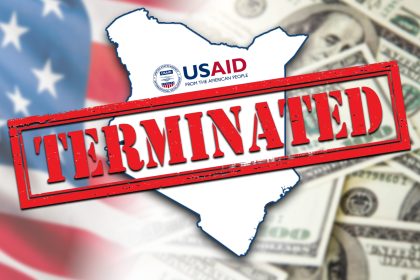Criminalising attempted suicide “indignifies and disgraces victims of suicide ideation… for actions that are beyond their mental control”– High Court Judge Lawrence Mugambi
Attempted suicide is no longer a crime punishable by law in Kenya, a court has ruled.
In a landmark ruling made on Thursday, High Court Judge Lawrence Mugambi declared the criminalisation of attempted suicide unconstitutional.
“It is my finding that applying the purpose-and-effect principle of constitutional interpretation, Section 226 of the Penal Code offends Article 27 of the Constitution by criminalising a mental health issue, thereby endorsing discrimination on the basis of health, which is unconstitutional,” he ruled.
“It also indignifies and disgraces victims of suicide ideation in the eyes of the community for actions that are beyond their mental control, which is a violation of Article 28,” he stated.
Mugambi was ruling on constitutional petition No. E045 of 2022 that was filed by three petitioners — Charity Muturi, The Kenya Psychiatric Association and the Kenya National Commission on Human Rights.
In the case, the petitioners challenged the Kenya government’s failure to uphold constitutional principles, including the protection of rights and freedom from discrimination. They argued that criminalization of attempted suicide disproportionately targets individuals with mental health conditions and disabilities.
Section 226 of Kenya’s penal code stipulates that any person attempting to take their own life is guilty of a misdemeanour and is subject to imprisonment of up to two years, a fine, or both, with the minimum age of prosecution set at eight years old.
However, the petitioners highlighted the link between suicidal behaviour and underlying mental health conditions such as depression and anxiety, criticising Section 226 for its punitive approach to deeply rooted mental health issues.
The petitioners contended that Section 226 violates Article 27 which guarantees equality and freedom from discrimination. It also goes against Article 28 which protects human dignity, as well as Article 43 (1) which envisions the right to the highest attainable standard of health.
The petitioners argued that the criminalisation of attempted suicide stigmatizes individuals suffering from mental health challenges, discouraging them from seeking help and eroding their dignity.
In his ruling, Justice Mugambi found that criminalizing attempted suicide endorses discrimination based on health status, contrary to Article 27 of the Constitution.
“The existence of Section 226 exposes the survivors of suicide and potential victims with suicide ideation to possible reprisals, thereby eroding the right to have the highest attainable standard of health envisaged in Article 43 (1) of the Constitution,” reads a section of the ruling.
The judgment also acknowledged that criminal sanctions perpetuate stigma and shame for survivors of suicide attempts, often isolating them from community and institutional support, while recognising suicide as a public health issue rather than a criminal matter.
Today’s ruling is a significant milestone in addressing the intersection between mental health, disability rights, and constitutional freedoms in Kenya.
Globally, the World Health Organization (WHO) recognises mental health disorders as a leading cause of suicidal ideation. WHO data from 2021 shows that Kenya has a suicide rate of approximately 4.9 per 100,000 people, which is comparable to the global average of 9 per 100,000.
In 2019 alone, the Directorate of Criminal Investigations (DCI) in Kenya recorded 499 suicide cases, a significant rise compared to previous years.
However, these figures are said to be highly inaccurate because of underreporting due to the stigma associated with the cases, as well as inaccurate data collection systems.
Locally, the Kenya Mental Health Policy (2015-2030) underscores that mental health issues remain underdiagnosed and under-treated, exacerbating the vulnerability of affected individuals.
The Kenya National Commission on Human Rights (KNCHR) has also flagged suicide as one of the leading causes of death among youth and young adults in Kenya, often driven by untreated mental health conditions, economic hardships, and societal pressures, even as the Kenya Mental Health Policy highlights a critical shortage of mental health professionals in the country.
With only about 100 psychiatrists and fewer than 500 clinical psychologists serving a population of over 50 million people, access to mental health services remains a significant challenge in Kenya.
According to the Kenya Mental Health Policy, mental health services account for less than one per cent of Kenya’s health budget, a figure far below the WHO recommendation of 5-10 per cent. This limited access contributes to the persistence of untreated mental illnesses, which can lead to suicide attempts.
The court’s decision marks a transformative shift in Kenya’s approach to mental health and aligns with the WHO’s recommendation to decriminalize suicide globally, emphasising that individuals in crisis require support, not punishment.
Kenya’s 2020 Taskforce on Mental Health declared mental illnesses a national emergency of epidemic proportions. A report by the task force called for legislative reforms and increased funding for mental health services. While the decision is a win for human rights and mental health advocacy, it underscores the broader need for legislative reforms to support mental health equity in Kenya.
Where to find help: If you or someone you know is struggling, support is available. Reach out to a trusted professional or local helpline —you are not alone.





















